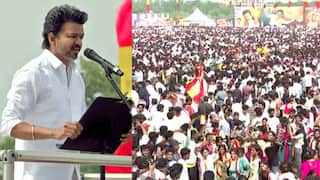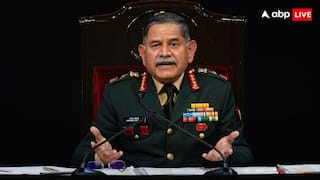Opinion: Manmohan Singh Was Not A ‘Weak’ PM, His Strength Was His Quiet Conviction

In the lexicon of Indian politics, Dr. Manmohan Singh stands out as a rare statesman who offered a refreshing antithesis — a leader who believed in the transformative power of ideas. His tenure as India’s 14th Prime Minister was marked by a commitment to progress, even as he had to navigate the turbulent waters of undemocratic challenges from a powerful lobby within his own party and the Gandhi family.
Months before stepping down in 2014, Dr Singh, addressing a press conference, firmly countered accusations of being a “weak” Prime Minister. “I do not believe that I have been a weak Prime Minister,” he declared. “I honestly believe that history will be kinder to me than the contemporary media or for that matter the Opposition in Parliament…”
A Leadership Rooted In Quiet Conviction, Amid Challenges
For Dr Singh, governance was never about dominating headlines or basking in public adulation. His leadership style was rooted in humility, intellectual rigour, and an unwavering focus on nation-building. He neither sought the limelight, nor indulged in populist posturing. Instead, he allowed his actions to speak for themselves — a quality increasingly rare in the boisterous world of politics.
As Prime Minister, Dr Singh spearheaded landmark initiatives that profoundly impacted India’s socio-economic landscape. The National Rural Employment Guarantee Act (NREGA), brought under his tenure, became a lifeline for millions in rural India, guaranteeing 100-day wage employment to every rural household. It addressed the pressing issue of rural unemployment, while uplifting millions out of poverty.
Equally transformative was the Right to Information Act, brought under his tenure, a tool that empowered ordinary citizens to hold the government accountable. In a nation where corruption often thrived in the shadows, this law was a giant step toward transparency and democratic empowerment.
But the most defining achievement of his tenure was the India-US civil nuclear deal. Under his leadership, India chose to collaborate with the US to transition from an era of nuclear threats and confrontations to one of peaceful, constructive cooperation in the use of nuclear energy. This agreement not only opened doors for advanced nuclear technology but also signalled India’s emergence as a responsible global nuclear power.
Dr Singh’s tenure as Prime Minister was often marred by power struggles within his party, his coalition partners of United Progressive Alliance (UPA) and the Nehru-Gandhi family’s overshadowing presence. These undemocratic challenges could have overwhelmed a less resolute leader. But Dr Singh stayed steadfast, focusing on the nation’s progress rather than succumbing to internal chaos.
His strength lay in his ability to rise above petty politics. Despite being labelled a “weak Prime Minister”, he faced his critics chin up and defended his record.
ALSO READ ON ABP LIVE | 'Soft-Spoken, Mild-Mannered Technocrat': How Global Media Reported Manmohan Singh's Death
Architect Of Economic Liberalisation
Dr Singh’s contributions extend far beyond his tenure as Prime Minister. As the Finance Minister in 1991, he played a pivotal role in reshaping India’s economic destiny. At a time when the nation teetered on the brink of economic collapse, Dr. Singh dismantled decades of protectionism and ushered in an era of liberalisation.
His reforms — ranging from inviting foreign investments to dismantling the Licence Raj — transformed India into one of the world’s fastest-growing economies. Millions were lifted out of poverty, and India began to assert itself as a global economic powerhouse.
This journey was not without resistance.
Dr. Singh faced stiff opposition from various quarters, including within his own government. Yet, his quiet determination ensured the successful implementation of these transformative reforms.
He stood out as a beacon of integrity. His decades-long public service remained unblemished, earning him respect across political and ideological divides. Beneath his calm exterior lay a steely determination and an unwavering sense of responsibility.
ALSO READ ON ABP LIVE | When The ‘Scrupulously Honest’ Manmohan Singh Gave India Its Strategic Foreign Policy
Legacy Of Quiet Strength
Dr. Singh’s life and career offer profound lessons in leadership. His governance was guided by a simple, yet powerful principle: the nation’s progress must always take precedence over personal or political interests.
This philosophy was evident in every decision he made — whether it was spearheading economic reforms, standing firm on the nuclear deal amid opposition, or navigating the complexities of coalition politics. For Dr. Singh, leadership was about doing what was right, even when it was not popular.
Dr. Singh’s legacy also tells us that true strength in leadership is not necessarily loud. Sometimes, it manifests in quiet perseverance, in the ability to remain focused on the bigger picture.
His contributions to India’s political and economic evolution are monumental. From rescuing the nation from economic despair to paving its way as a global power, Dr. Singh’s impact will be felt for generations.
But beyond his policy achievements, his greatest legacy is the example he set — a model of humility, integrity, and quiet determination.
"Dr. Manmohan Singh's contributions to India's development will always be remembered. His life reflected honesty and simplicity," Prime Minister Narendra Modi aptly stated of him while paying tribute to the daparted soul.
Saswat Panigrahi is a senior multimedia journalist.
[Disclaimer: The opinions, beliefs, and views expressed by the various authors and forum participants on this website are personal and do not reflect the opinions, beliefs, and views of ABP News Network Pvt Ltd.]


























